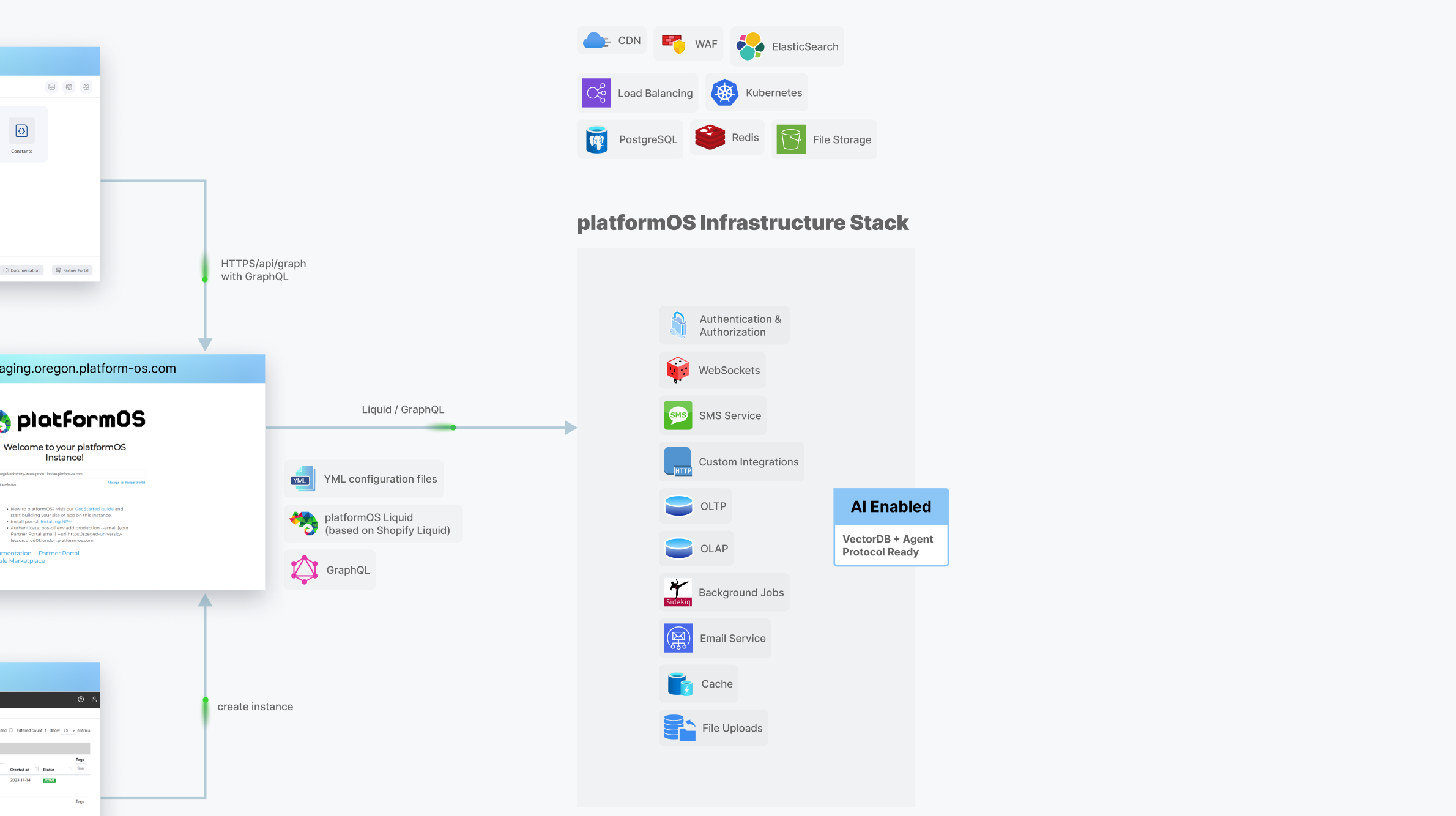Why Liquid, GraphQL and YAML?

Liquid
Let’s say you want to allow your users to customize the look and feel of your application. That’s perfectly safe with platformOS. Rather than using general-purpose programming languages (like Java, C#, Python, or Ruby), platformOS enables developers to implement business rules using Liquid: a widely adopted templating language developed by Shopify.
This level of flexibility and security wouldn't be possible using the above listed programming languages. If users were allowed to execute Java, C#, or Python, they could potentially run unsafe code with full access to the system - like handing them the keys to your entire server including data and services shared across other tenants.
Explore the official documentation on Why you should use Liquid.
GraphQL
platformOS uses GraphQL for data access and mutations, and YAML for configuration and schema definitions. You’ll write GraphQL queries and mutations to interact with the built-in, managed infrastructure - which includes PostgreSQL, Redis, and ElasticSearch, with built-in support for Vector Databases to enable AI embeddings and semantic search.
Check out the platformOS code examples for GraphQL terms in our GraphQL glossary, and find detailed descriptions of queries, mutations, objects, scalars, interfaces, enums, and input objects in our GraphQL Documentation.
To help you quickly develop GraphQL queries, we provide a GraphiQL graphical user interface through the pos-cli. GraphiQL is a GraphQL editor with autocomplete and live docs that helps you structure GraphQL queries correctly.
To learn more about using GraphQL and the GraphiQL tool, explore our documentation topics on using GraphQL in platformOS.
YAML
YAML is a human-friendly, easy-to-use and read data serialization standard used in platformOS for setting properties in configuration files and to define the database schema. To learn more, visit the Original Website yaml.org or yaml.info to learn YAML.
Thanks to these abstraction layers, each Instance operates as a secure, sandboxed environment, fully isolated from others. platformOS also supports WebSockets for real-time features and is AI Agent Protocol-ready, making it a future-proof foundation for applications that incorporate modern AI-driven workflows.